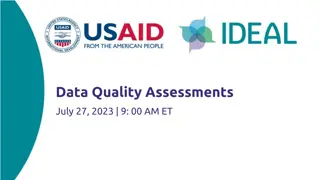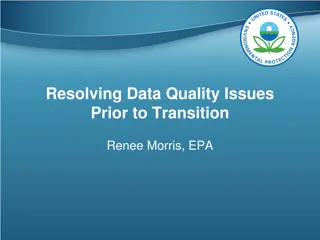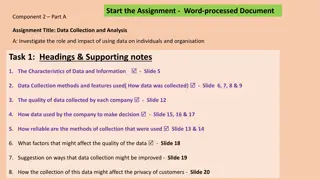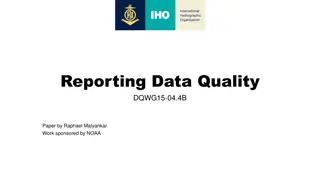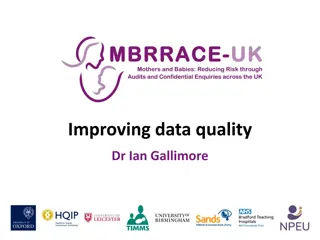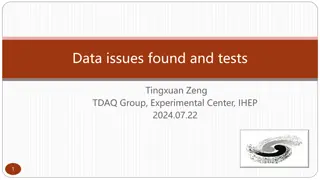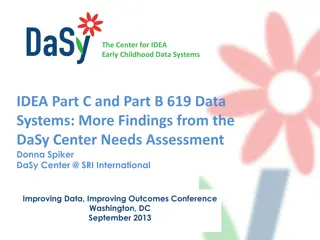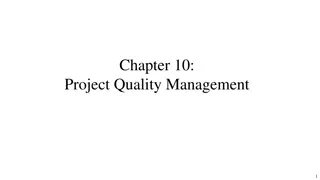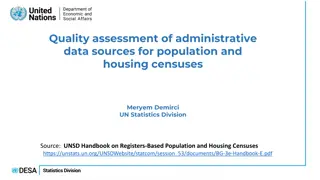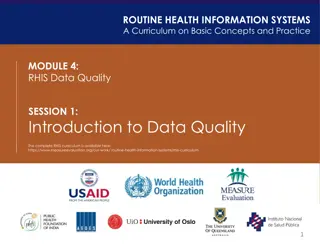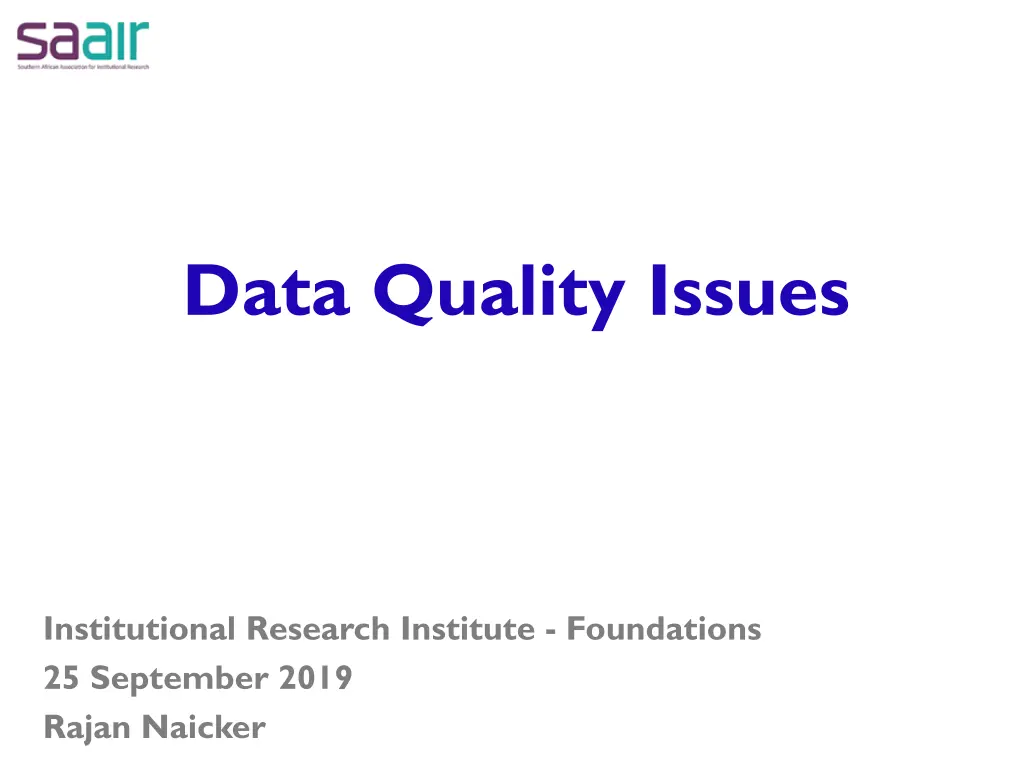
Effective Data Quality Strategies for Institutional Decision Making
Improve data quality for better decision-making in institutions. Learn about common data issues and solutions like collaboration between data creators and end users to enhance data quality at the source. Avoid financial loss, poor decisions, and reputational damage caused by poor data quality.
Download Presentation

Please find below an Image/Link to download the presentation.
The content on the website is provided AS IS for your information and personal use only. It may not be sold, licensed, or shared on other websites without obtaining consent from the author. If you encounter any issues during the download, it is possible that the publisher has removed the file from their server.
You are allowed to download the files provided on this website for personal or commercial use, subject to the condition that they are used lawfully. All files are the property of their respective owners.
The content on the website is provided AS IS for your information and personal use only. It may not be sold, licensed, or shared on other websites without obtaining consent from the author.
E N D
Presentation Transcript
Data Quality Issues Institutional Research Institute - Foundations 25 September 2019 Rajan Naicker
Objectives Provide managers with timely, accurate information, which integrates various business operations of the institution to support decision making. Statutory reporting.
Data Quality Data-driven decision-making is dependent on the quality of your data. Data quality is about fitness for purpose. Poor data quality leads to poor information quality with a number of serious implications: Financial loss Poor decision making Reputational damage
Data quality by and large is pretty bad. On average, 47 percent of new data records have at least one major error. Just 3 percent of respondents say their organization meets the minimum acceptable range of at least 97 correct data records out of 100. Research by Tadhg Nagle, Thomas Redman and David Sammon published in Harvard Business Review.
Common Issues with Data Data resides in silos. Manual data entry processes are slow and error-prone. Data management roles and accountability are not clearly defined. Lack of communication between departments.
Effective Data Quality Strategy Collaboration between data creators and end-users to pinpoint the root cause of quality issues. Instead of focusing on cleaning up existing data, universities should work to improve the quality of data at the point of creation, which will limit how often data clean ups are required.


